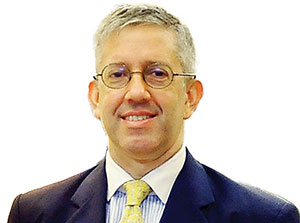Planning in a time of unseen variables
 |
Donald Trump is now just a few weeks into his term of office as US president. It has been a turbulent few weeks with a slew of executive orders, protests, lawsuits, court rulings, and narrowly-approved cabinet appointments. There are still many unknowns as to how the new administration’s policies could impact Vietnam’s economy, but there have also been some developments that are clarifying his positions.
First, as I and others expected, Trump withdrew from the Trans-Pacific Partnership (TPP) on his first day in office. Although this is disappointing for Vietnam, it clearly is not the end of the world. Fears of declining foreign direct investment into Vietnam in the wake of TPP’s demise seemed to be immediately put to rest by Samsung Display’s announcement that it would invest another $2.5 billion to expand capacity here. In fact, the feedback I have heard from several multinational companies is that decisions to invest in manufacturing are very long-term in nature and driven by many other factors besides free trade agreements.
Besides for TPP, not much of Trump’s attention in these early days has focused on trade. In fact, there has been surprisingly little mention so far of trade with China - a topic that dominated the new president’s campaign rhetoric. Instead, he has focused on immigration, healthcare, and reducing American regulations - none of which have much impact on Vietnam.
There has also been very little discussion of tax cuts and infrastructure programmes (except the Mexican border wall) so far. These will probably come later, but they were the items that most heavily drove the US dollar’s rally immediately following the election. For now, the dollar has stabilised and the dong has slightly appreciated in the year to date. Still, the US economy continues to perform well enough that a US Federal Reserve (Fed) hike at the March meeting seems likely. Viet Capital had already built three Fed hikes into our forecast for a 3 per cent dong devaluation this year. Nothing we have seen so far changes that forecast.
Perhaps the most significant development so far affecting Vietnam is the appointment of Rex Tillerson as US Secretary of State. Tillerson was previously CEO of ExxonMobil, which has a history of investment in Vietnam. Last month - prior to Trump’s inauguration and Tillerson’s appointment - ExxonMobil entered into an agreement with PetroVietnam to develop the Blue Whale project, which contains an estimated 150 billion cubic metres of gas reserves. Based on this agreement, it is safe to assume that the top US diplomat has a favourable impression of Vietnam and will be eager to continue building a strong relationship between the two countries.
Despite pulling out of the TPP, Trump has expressed his willingness to develop a bilateral free trade agreement with Vietnam. Perhaps Tillerson’s involvement can help make that a reality.
Other cabinet appointments also shed light on US economic policy developments. Despite campaign promises to “drain the swamp” of Wall Street influence on government, several Goldman Sachs alumni have joined the administration. Chief strategist Steve Bannon, Secretary of the Treasury Steven Mnuchin, and proposed Head of the Council of Economic Advisors Gary Cohn are Goldman alumni. Jay Clayton, a former partner at the law firm of Sullivan & Cromwell (which handles a lot of Goldman work), is proposed to oversee capital markets regulation.
At the same time, Trump has announced his intention to peel back the Dodd-Frank regulations, which conservatives view as overly restrictive on US corporations and banks. Including these people and such policies indicates an environment where investors may be more willing to look at riskier investments -including frontier markets like Vietnam - but how this will translate into actual capital movements remains to be seen.
Putting all of these developments together, the investment picture for Vietnam probably seems slightly better than it did on US Election Day. But we still have roughly three years and 49 weeks until the next inauguration. A lot can happen.
What the stars mean:
★ Poor ★ ★ Promising ★★★ Good ★★★★ Very good ★★★★★ Exceptional
Latest News
More News
- Vietnamese businesses diversify amid global trade shifts (February 03, 2026 | 17:18)
- Consumer finance sector posts sharp profit growth (February 03, 2026 | 13:05)
- Vietnam and US to launch sixth trade negotiation round (January 30, 2026 | 15:19)
- NAB Innovation Centre underscores Vietnam’s appeal for tech investment (January 30, 2026 | 11:16)
- Vietnam moves towards market-based fuel management with E10 rollout (January 30, 2026 | 11:10)
- Vietnam startup funding enters a period of capital reset (January 30, 2026 | 11:06)
- Vietnam strengthens public debt management with World Bank and IMF (January 30, 2026 | 11:00)
- PM inspects APEC 2027 project progress in An Giang province (January 29, 2026 | 09:00)
- Vietnam among the world’s top 15 trading nations (January 28, 2026 | 17:12)
- Vietnam accelerates preparations for arbitration centre linked to new financial hub (January 28, 2026 | 17:09)
















 Mobile Version
Mobile Version